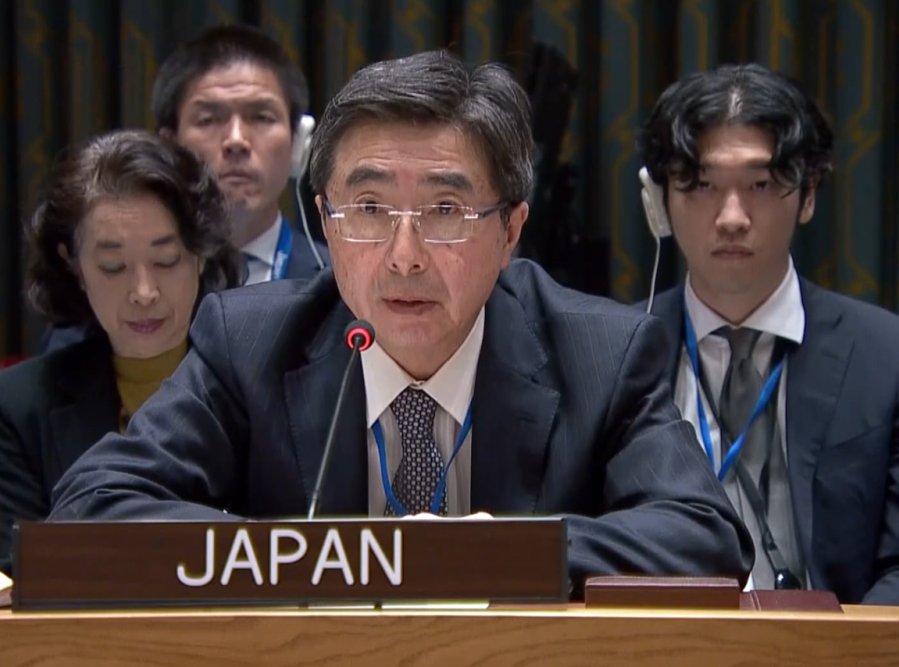Statement by H.E. Ambassador ISHIKANE Kimihiro, Permanent Representative of Japan to then United Nations, at the United Nations Security Council Debate on “Threats to International Peace and Security Caused by Terrorist Acts: Countering Terrorism and Violent Extremism Conducive to Terrorism by Strengthening Cooperation between the United Nations and Regional Organizations and Mechanisms”
2023/3/28

Mr. President,
I would like to express my appreciation to you for convening this important debate, and I thank Secretary-General and President Azali Assoumani for their comprehensive interventions.
Addressing terrorism and violent extremism is one of top priorities for Japan. Regrettably, terrorism remains a significant threat to international peace and security including in Africa. We emphasize the following crucial elements: 1) African-led initiatives, 2) countering terrorist financing, and 3) a human security perspective.
First, it is imperative to promote African-led counter-terrorism efforts. Japan welcomes regional efforts such as the Accra Initiative, ECOWAS Conflict Prevention Framework, and SADC Mission in Mozambique.
Effective counter-terrorism efforts require capacity-building assistance from the international community for law enforcement and security authorities.
Japan is committed to supporting African-led efforts under the New Approach for Peace and Stability in Africa (NAPSA) launched at the 7th Tokyo International Conference on African Development (TICAD 7), for example by strengthening local administration capacities in the G5 Sahel and neighboring countries.
Second, the international community must unite in combatting terrorist financing. In the region, it is alarming that illicit trade in natural resources, including wildlife, has become a source of funding for terrorists and armed groups. There are also growing concerns about the misuse of new and emerging technologies. These challenges should be addressed in a coordinated manner in accordance with relevant resolutions.
Japan is firmly committed to tackling these threats in collaboration with the international community, while actively participating in discussions through the FATF on the formulation of international standards.
Third, addressing root causes such as poverty and inequality is indispensable in the fight against terrorism. More than ever, Japan believes this requires a human security approach to protect and empower people, and promote cross-cutting, holistic, and coordinated handling of all the challenges we face, thus leaving no one behind.
All of our efforts in critical sectors such as health, education and environment sectors, as well as investing in people, are aimed at building a resilient and sustainable society where human security is ensured, and thereby reducing their vulnerability to terrorism and violent extremism. We emphasize the importance of all the UN Member States to consider a human security perspective in their counter-terrorism measures.
Mr. President,
Japan will constructively engage in the upcoming 8th review of the Global Counter-Terrorism Strategy (GCTS). As the terrorism threat in Africa intensifies, it is crucial to emphasize the need for the promotion of the rule of law, human rights, gender mainstreaming, maritime security, and a whole-of-government and whole-of-society approach, as underscored in the previous GCTS review resolutions. The rule of law, in particular, is a vital principle for implementing effective counter-terrorism measures.
As a committed partner in the global fight against terrorism, Japan will continue to cooperate with the United Nations, regional organizations, and all Member States to ensure peace, stability, and prosperity across the African continent and beyond.
I thank you, Mr. President.
